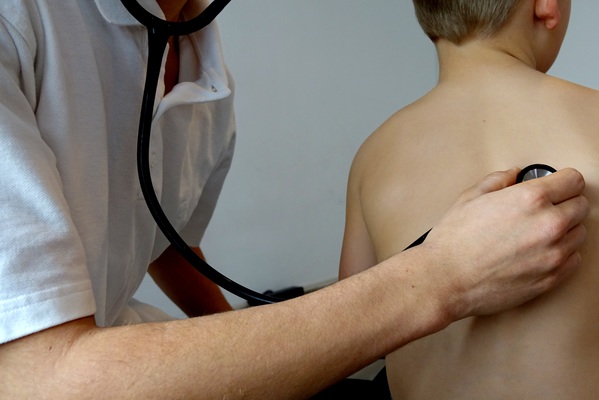By Melissa Grant
Apart from dreary cold weather, winter can also bring a succession of insipid illnesses that can leave the whole family sneezing, wheezing and coughing.
But how do you know whether your child is just suffering from a common virus that will eventually pass or something more serious?
Emergency medicine specialist Dr Catherine Kizana says the colder months can bring various viral illnesses, the flu, pneumonia and asthma flare-ups.
But in most cases, she says, parents need not worry when their child is unwell.
“Parents can get really worried when their kids aren’t flying around like whirlwinds,” Dr Kizana said.
“As adults when we get sick we want to sit down and not do much – children are the same.
“If your child is eating and drinking reasonably well, and if they are less jumpy around but still interactive – you can be pretty reassured by that.”
As most viruses don’t have a specific treatment, you generally have to wait until they pass.
WHEN TO SEEK MEDICAL HELP
When it comes to winter illnesses, there are various red flags that indicate it’s time to seek medical assistance.
Here’s Dr Kizana’s advice on what parents should be observing:
Fever: A fever in itself isn’t a major concern. It’s a normal body response – it’s actually the body fighting the virus. The common misconception is that the height of the fever tells how unwell a child is. The height doesn’t matter. If the fever goes on for more than five days then that’s a red flag. Also, if a child is less than two months old they always need to go to hospital if they have a fever
Fluid intake: How much fluid they are getting in and how much they are getting out? If a baby is taking half their usual bottles then that’s a concern. Not many wet nappies can also be a sign they need to go into hospital and be re-hydrated
The child’s behaviour: Obviously we wouldn’t expect an unwell child to be running around as normal. But if they are more seriously unwell they will be listless and unwilling to play.
Difficulty breathing: Children with pneumonia exhibit signs that they’re having difficulty breathing. When you look at a child and they’re struggling to breathe they actually suck in the muscles between their ribs.
Wheezy breathing: Cold air can also trigger asthma, which is caused by airway spasms – that’s when you get that wheezy sound. The medication we give make the airways wide again. We generally don’t diagnose children with asthma until they are at least 2 – you want to be sure it is the correct diagnosis. Young babies can get viruses that affect the chest where you can get a wheezy noise.
Dr Kizana, of My Emergency Dr, encouraged any parent with serious concerns to seek immediate medical assistance.
“With any concern you can phone My Emergency Dr through our smartphone app or go to the emergency department,” she said.
“We would rather people come and be reassured rather than not come at all.”








